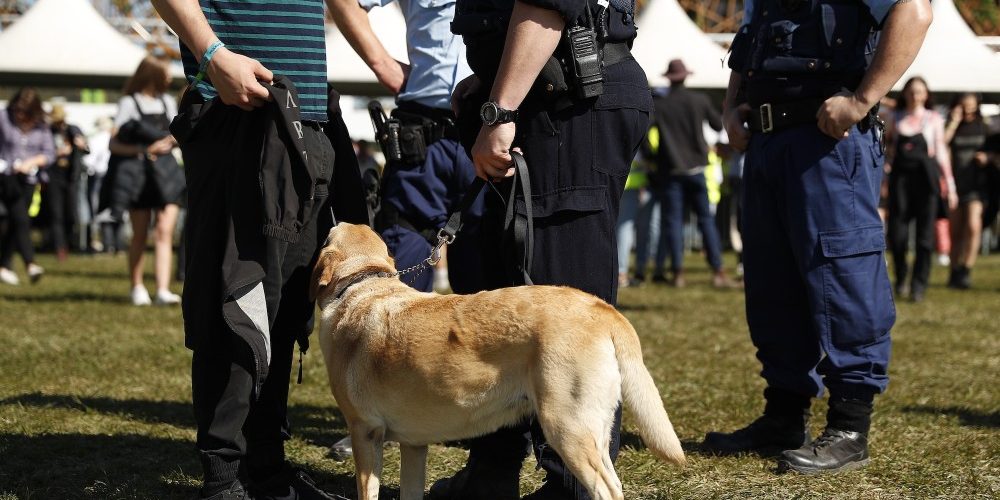Study finds police presence at music festivals can lead to “panic overdoses”
A new study has found that the presence of police at music festivals can lead some attendees to “panic overdose”, consuming all their drugs prior to entering the site.
The Australian study, led by researchers at the University of NSW, surveyed festivalgoers at six music festivals in New South Wales that took place between November 2019 and March 2020.
The study, published in Drug and Alcohol Review earlier this month, asked 1229 participants to complete an anonymous survey around prior drug use habits, their intended drug use at the events, and how police and drug detection dogs influenced their drug use at the festivals they were attending.
Of the 1229 participants, 372 (around 30 per cent) said they used or planned to use drugs at the festival. Among that group, MDMA was the commonly reported drug, making up 268 (or 77 per cent). Cannabis, cocaine, LSD and ketamine use were also recorded.
Of those who said they used or intended to use MDMA, 48 per cent reported double-dropping (consuming two or more doses at once). Men were twice as likely to double-drop than women, the survey found. 22 per cent of participants who said they used or intended to use drugs also reported high-risk alcohol use.
Researchers found there was a correlation between the presence of police and drug detection dogs and higher-risk drug behaviours among festival attendees.
Respondents who said that the presence of police and police dogs influenced their decision to take drugs were twice as likely to “pre-load” (consume all their drugs before entering the festival grounds). The presence of police was also found to make people reluctant to seek medical help.
Speaking to The Guardian, Dr. Jonathan Brett, a senior research fellow at the University of NSW who was an author of the study, said: “There’s a really growing body of evidence now in Australia that police and police dog presence and security strategies at festivals is actually potentially really harmful.
“I really hope we can have a conversation, not about removing police altogether but potentially about a different approach to policing strategies that isn’t just about criminalising drug users. Everyone wants people to be safer and healthier, so we need to discuss how we can best achieve that.”
